The Physiology of Taste by Jean-Anthelme Brillat-Savarin; translated by Anne Drayton [Book]
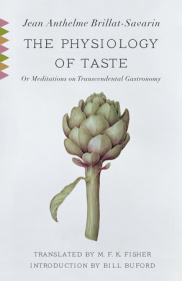
view/request
One of the great classics of food writing, still fun to read and filled with insights almost 200 years later.


view/request
One of the great classics of food writing, still fun to read and filled with insights almost 200 years later.
Tagged: Food, Non-fiction

view/request
Join Julie Powell as she tries to cook the entire “Mastering the Art of French Cooking” cookbook in one year. Her funny story started out as a blog and turned into one hilarious story about the adventures of trying something new.
Tagged: Food, Memoir, Non-fiction
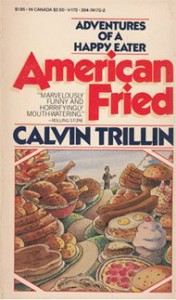
view/request
Trillin is just as serious about food as some of the more earnest writers on this list, but also hysterically funny. His main thesis is that the local food usually is best, not the “continental cuisine” served in the pretentious restaurants found everywhere which he names generically “La Maison de la Casa House”. This book is the first in his Tummy Trilogy, which moves on to Alice, Let’s Eat, and finishes with Third Helpings — a delectable three-course meal, all in our collection.
Tagged: Food, Non-fiction
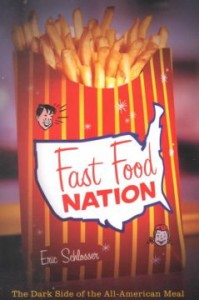
view/request
Analyzing the influence of the fast food industry on American society, an award-winning journalist explores the homogenization of American culture and the impact of the fast food industry on modern-day health, economy, politics, popular culture, entertainment, food production, and more.
Tagged: Food, Non-fiction
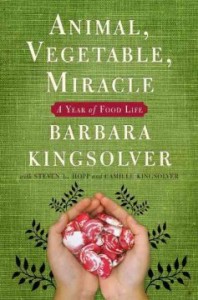
view/request
The National Humanities Medal-winning author of The Poisonwood Bible follows the author’s family’s efforts to live on locally and home-grown foods, an endeavor through which they learned lighthearted truths about food production and the connection between health and diet.
Tagged: Food, Non-fiction
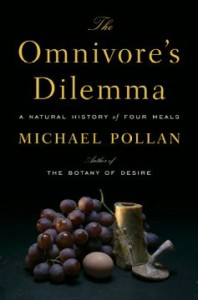
view/request
An ecological and anthropological study of eating offers insight into food consumption in the twenty-first century, explaining how an abundance of unlimited food varieties reveals the responsibilities of everyday consumers to protect their health and the environment.
Tagged: Food, Non-fiction
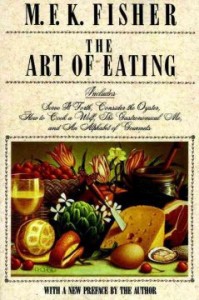
view/request
A compendium of the first five books by the famous food and autobiographical writer, filled with her mixture of insights into gastronomy and life in general. Her dry humor seasons the experience, as when she noted during the food shortages of World War II “when the wolf is at the door, one should invite him in and have him for dinner.”
Tagged: Food, Non-fiction
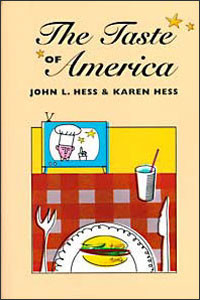
view/request
This polemic about American cooking grabs the food establishment by the back of the neck and gives it a good shake. It does this partly by setting the historical record straight and partly by exposing the conceits, lazy thinking, and nutritional gobbledegook of so many food writers. Karen Hess was a food historian, John L. Hess was a reporter with a nose for the telling detail, and together they have written a book that is eye-opening, deliciously mean, and, unexpectedly, affectingly evocative. Sadly, it is just as pertinent today as it was in 1977, when it first appeared.
Tagged: Food, Non-fiction

view/request
Katherine O’Fallon, of Boston, marries a Canadian Mountie named Mike Flanagan. Together they live a large life in the wilderness dealing with hardship and loss with their neighbors, both white and native, in an engaging and bighearted way.
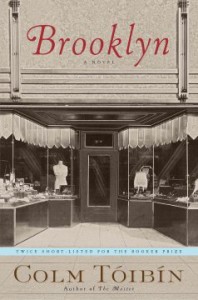
view/request
Brooklyn is a beautifully written novel about an Irish girl who moves to Brooklyn in the 1950s to find work. Toibin sensitively relates the protagonist’s ambivalence about both Ireland and Brooklyn and her inability to reconcile the two different worlds.
Tagged: Fiction, Immigration
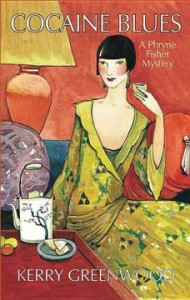
view/request
This is the start of a series that was originally published in Australia that are now being republished here. Phryne (rhymes with brine-y) Fisher is an independent 1920s female sleuth, who solves a jewel theft while bored in England, and then moves to Melbourne to investigate the mysterious illness of the daughter of a family friend. Meet the interesting cast of characters that you will come to know and love in subsequent books. Phryne is feisty, wealthy, and enjoys fine clothing, fine food, and fine men.
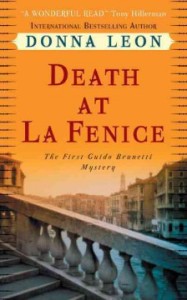
view/request
The first in the series featuring Commissario Guido Brunetti. Brunetti is called in when a famous conductor dies of poisoning during an intermission at La Fenice. The city of Venice is the backdrop to an abundance of suspects, as Brunetti, with little help from his superior or the other policemen assigned to him, deftly investigates.